Victor Kislyi: “Scientific and technical potential of Belarus is big”
Victor Kislyi of Wargaming.net speaks about his life and business
 Photo via Vedomosti.ru
Photo via Vedomosti.ru
“You cannot be bad at watching a movie. You cannot be bad at listening to an album. But you can be bad at playing a video game, and the video game will punish you and deny you access to the rest of the video game. No other art form does this!”
–Irish comedian Dara O’Briain
Among Belarusian-born companies, Wargaming.net has been a rocket shell bursting unexpectedly onto the global online gaming scene. After being founded two years earlier, the company introduced its first successful turn-based strategy game in 2000, and had its first great success with Massive Attack in 2003. After developing its first real-time strategy game hits of Operation Bagration and Order of War, both simulating the Second World War in Europe, the company shifted its business model to online gaming in 2010 with World of Tanks. In May 2013, its online presence expanded dramatically with the introduction of its Open ID authenticating system that allowed the creation of a unified premium account for all its games, including its World of Warplanes web-based simulation and World of Tanks Blitz variant, introduced a month ago on June 26. World of Warships is promised shortly.
Meanwhile, chief executive officer Victor Kislyi talked to the Moscow business daily Vedomosti about life before and after the creation of World of Tanks, now a legend in online gaming, as well as the mistakes and victories his company has had in its business, the reasons for moving his company to Cyprus, and his plans for the future.
Taking gaming from distraction to career
Kislyi, who ranked 13th among a list posted by Ezhednevnik online gazette of Belarus’ top 200 businessmen, began work on Wargaming.net when he was still in his last years at Belarusian State University (BSU). “In the science lab where my father worked, there were computers,” he said. “Old, pot-bellied computers. And on them were the first games that simulated management of kingdoms, primitive ones whose names I don’t remember. But I remember the games, they were horrible and scary. But gamers have a nostalgia for them. Then came the computer clubs, and they had computer games where someone somewhere is running, shooting, or flying a spaceship somewhere.”
“Us boys, all of us, loved these games,” he said. “They mesmerized an entire generation!”
He began to get serious about business when he began graduate studies in the Faculty of Physics at BSU, studies upon which his father insisted. “There are few things in my life in which he insisted,” he said. “In first grade, he sent me to a professional chess school, and I studied there for about seven years.”
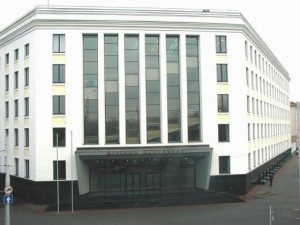
Faculty of Physics building at Belarusian State University. Photo by Alexander Rytov via Wikimedia Commons
“I later began to think about what to do after school. After the collapse of the Soviet Union, it was fashionable to go to ‘Narkhoz’ (nickname for the Belarusian State Economics University, or BSEU). The concept went as follows: go to Narkhoz, get a degree in accounting, than go into business. My father explained to me that I would be amiss to not go into accounting, or maybe business administration. But the ability to use your head, to think, to create – in Narkhoz, they can’t teach that. So he insisted that I go to the Physics Department at BSU.”
Kislyi recalled his education briefly. “What did I study there? Mathematical analysis, tensors, thermodynamics, quantum mechanics, etc.,” he said. “In real life, none of this I needed, but looking back I can say that not only I, but many other people who were there at the start of Wargaming, were all educated in physics, chemistry, and mathematics. That education really helped us in terms of modeling and so on.”
“What do physicians do? They try to answer the universe’s sacramental questions through models,” he siaid. “Models are really just observed reality, and on the basis of modeling, experiments can be conducted to build hypotheses, theories, and conclusions. I made an honest effort in my study of physics, but because of (Sid Meier’s game) Civilization, I almost flunked.”
His head has it right, think and create
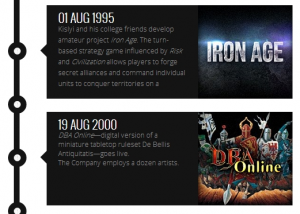
Screenshot of the timeline on the Wargaming website, covering the first two notable ventures pursued by Kislyi’s company. Photo via Wargaming.net
In August 1995, Kislyi, with some of his friends from the university, wrote his first game, Iron Age, inspired in part from the board game Risk and Civilization. “We can say that I had pretensions of conquering the world,” he said. “I created my game based on board games. But back then, there really wasn’t an Internet. It was a black screen, and in text form some squiggles could be produced. Everything was still in simplified form, but we managed to intuitively look into the future. Our first game was online. It worked by e-mail, and consisted of a giant chess game on a world map. Players made their moves, posted them in E-mail, sent it to our server. The server resolved the moves, processed the results, and dispatched what the new situation looked like. It was really small, but it was an MMO (‘massively multiplayer online’ game).”
Today, Wargaming.net is a renowned computer game developer. The speed at which it has developed its market can be shown in its revenue flow, which amounted to 217.9 million EUR in 2012, and 234 million EUR in just the first half of 2013 (the full 2013 figures have not yet been reported by the company). The profit sheets have been equally remarkable, amounting to just under 6.2 million EUR in 2012, and jumping to 25.6 million EUR in the first half of 2013. Company shareholders include Victor Kislyi with 38.5 percent, his father Vladimir with 25.5 percent, and both Nicholas Katselapov and Ivan Mikhnevich with 17 percent each. Another 2 percent are divvied up with minor shareholders who buy and sell on the Cyprus Stock Exchange.
But back at the start, things were not so luxurious. “We had five or six students who lived off their scholarships,” Kislyi recalled. “My father helped with pocket money. The salary of our first professional programmer was 25 USD per month. We all worked and earned money from other jobs just to keep from starving. But we knew that if we made a game that people would consider the best of all time, it would take over the world and we’d be rich! Until the 2000s, that was us, all enthusiasm, but no money.”
“In 1998, and this is an important point,” he said, “us geeks (physics majors, mathematicians, computer scientists) understood that we could make something beautiful with internal technical logic. But then we had to understand marketing. Yes, it turns out there is still the market! The fact that my brother and I set off a release of the game does not mean that tens of thousands of people in the world will go after this release. (After an initial flop), I began to think about what went wrong here. I mean we had it all cleverly conceived and implemented. Well, it turned out it was too clever.”
The developers began to realize that their product had to fit the atmosphere of the times for it to work, and after seeing tabletop miniature gamers in the United States, he came up with the idea for his 1998 release “De Bellis Antiquitatis” or DBA Online. “This was very popular within the narrow circles who played board games,” Kislyi said. “Grown men who buy tin soldiers that are very accurately made – Romans, Macedonians – and they instigate fights with these.”
The game actually represented their first attempt at online gaming. In August 2000, DBA Online was released, nearly a decade before World of Tanks. Nearly a dozen artists were employed in the project. But DBA was distributed mostly in the box.
The road to fame, if not riches – Massive Assault
After DBA, Kislyi decided to team up his 30-person office with a smaller Minsk gaming studio called Arise Games (later absorbed), with whom Wargaming developed a lot of interesting ideas. “Probably the best among these was Massive Assault,” said Kislyi. “This was one of the world’s first three-dimensional turn-based strategy games. We took a sci-fi universe, with humanoid-like walking robots, futuristic helicopters, ships, tanks, and plasma rifles, and made a smart chess-like mathematical model, where you could enjoy the explosions and the movement. At the same time, when you play against a good opponent, you have to really think strategically and tactically. Applying only simple strategy or simple tactics would make winning almost impossible.”
“We were proud of this game,” Kislyi said. “With it, we went to the Western market for the first time. The game appeared on shelves in American, German, and British shops.”
The original game, Massive Assault, was released in September 2003, and ranked fairly high on Game Rankings with a score of 79.73 out of 100. The lowest score contributing to this ranking came from GameSpy, which gave it only 3 out of 5, while Game Vortex and DailyGame gave it a 9.5 out of 10. The networked version went out to the market in April 2004, and an extension, “Massive Assault: Phantom Renaissance,” was turned loose to gamers in March 2005. A second, improved networked version was released in November 2006.
Finally, the final episode of the game went out in September 2007 (two months before Wargaming bought out Arise) with Galactic Assault: Prisoner of Power, which didn’t do as well as Wargaming’s other Massive Assault releases, earning only a 69.47 out of 100 rating on Game Rankings (the lowest scores coming from IGN and PC Zone UK, who gave it a 6.2 out of 10 and 62 out of 100, respectively; the highest score came from Gaming Nexus and Game Industry News, who gave it 8 out of 10 and 4 out of 5, respectively). Still, the series put the Belarusian company on the global gamer’s map.
Works of love – Operation Bagration and Order of War
“After that success, we had to move to a higher level, and so we decided to make a real-time strategy game,” said Kislyi. To that end, Wargaming, as an expanded company, collaborated with other partners to create the joint venture firm Game Stream, through which the company focused its energy on its next major projects, including its award-winning “Operatsiya Bagration,” or Operation Bagration.
“Right in front of us, we had the most famous tank battlefields in the world,” said Kislyi, “all of which were on our territory, taking place during (WWII’s) Operation Bagration. It was as if God himself commanded us. We had all of Belarus, with specific areas where real battles took place in Operation Bagration in 1944, and recreating these allowed us to make a computer game. We developed a beautiful story from it of the liberation of Belarus, telling it in great detail – quite beautifully, as it turned out.”
Wargaming’s tribute to the Soviet liberation of Belarus, Operation Bagration, went out on the market eight months after being announced, just before the Russian New Year’s season on Dec. 25, 2008, and received similar ratings in that country’s market by Absolute Games (75 out of 100) and Igromania (8 out of 10). Absolute compared it to Massive Entertainment’s World in Conflict, an alternate history game featuring tanks in a fictitious 1989 Soviet invasion of the US Pacific Northwest, released the previous year.
“At the Game Developers Conference, we honestly deserved the first prize for best strategy game,” Kislyi said of his company’s win of the Best Developer Award at this Moscow gathering in May 2009. “It was our first award, and we still appreciate it. We were declared from then on a serious domestic player (in the tech industry).”
Following on the heels of Bagration, Wargaming shifted to WWII tank battles in Western Europe. “For the West we did the next game, which was named by our (Japanese) publisher Square Enix as ‘Order of War,’ because nobody in the West knows about Operation Bagration,” said Kislyi. “There, they know about the Normandy Landings and the Liberation of France by American troops. So we executed the design of this game at the same very decent competitive level.”
Order of War came out in September 2009 and garnered a 69.59 out of 100 rating from Game Rankings. The lowest review came from PC Gamer UK, which gave it a score of 45 out 100, while Gaming Nexus, Game Vortex, and 1UP all gave the equivalent rating of about 85 out of 100, the highest rankings in the composite review. Its historically accurate campaign storyline and its cinematic style were lauded by reviewers.
However, both Operation Bagration and Order of War were poorly timed, having been released during the financial crisis of 2008 and 2009. “As always, we failed to make money,” said Kislyi. “I attribute this to the fact that the packaged game in a box has ceased to exist for small and medium firms as a business plan. There are several mega-superhits that developed in the past 20 years (Call of Duty for example), plus multi-platform, which we tried for the PC. These franchises have a chance, and they earn well. But their income rises because other small and medium businesses just die. And games that have a budget of 500,000 to 1 million USD have no chance to compete. There is always a chance, of course, for success, which is why we are in the gaming industry where there is always a hope for success. But if you look at the statistics, Call of Duty or Grand Theft Auto never really had a chance (as a boxed game only). We realized that if we tried to sell our games in a box, we’ll languish, and live only from payment to payment, or we’d be shut down. So we came up with something radically new.”
Fighting every day in the gaming world
Then came World of Tanks. “We went through all the Rings of Hell and realized finally – Box: NO! Online: Yes,” said Kislyi. “We saw this as a chance to be localized to every individual market. We’d reach a wider audience. With the press of a button, you could download whether you are in Russia, America, or China. We came up with a universe of games. So we decided to narrow the choices, maybe games where infantry runs around here and there. Finally we decided, and this is generally the craziest part, ‘Let’s just do tanks!’”
“Well, we just did tanks. At the time, we had no idea up to what extent this idea would catch on! A month ago (December 2013), when in Russia it was the 8 p.m. hour, in one second we had 1.1 million players sitting in tanks around the world.”
That moment in time made into the Guinness Book of World Records. “We have all the certificates and we’re proud of it,” said Kislyi. “It was very important to us.”
The success of World of Tanks was not immediate, and Kislyi at one point even considered selling part of the company. “I and several of my colleagues traveled to Russia and elsewhere in the world,” Kislyi said. “We thought maybe we’d find a publisher. We looked in Germany and in America, but there was none to be found. As they say, thank God!”
World of Tanks was a hidden gold mine. It represented a fundamental change in the gaming industry, marketing games by letting people try them for free. “Publishers were only able to sell games in a box,” Kislyi said. “But it was ridiculous, they simply did not understand how to conduct business online. ‘It’s a free game?’ They hadn’t an idea that you can download and pay nothing because World of Warcraft (the popular massively multiplayer online role-playing game, or MMORPG, by Blizzard Entertainment) was by subscription at a rate of 10-20 USD per month. And then suddenly we come along and no one pays?”
Kislyi said that Wargaming.net’s statistics show 70-75 percent of players continue to play for free, and never actually upgrade to a premium account. “The publishers responded, ‘No, no, no – no, we can’t go for that,” he said. “Approximately the same dialogue happened with all publishers.”
Placing a Freemium on making money
Although the publishers distrusted the idea and the focus on tanks only, in the end, they were shown to have a lack of foresight. “We were lucky, of course,” admits the Wargaming CEO. “We couldn’t be sure that something might not turn out. But we started the very idea of a free-to-play game. It’s been popular; it’s flourished in Asia, in Russia. Such simple game mechanics too, you sit at work, and you just click in. For Russians, this was very clear. And we managed to get the premium payment infrastructure up in time. It wasn’t 2003 anymore.”
Kislyi noted that the company has very soft monetization. The 70-75 percent of those who don’t pay, probably never will pay anything. The owners designed it that way, so that it’s possible to just play and enjoy the experience without investing any real money. “We have players telling their friends, ‘Listen, Vasya, buy something already, otherwise you won’t get very far in the tournament,’” he said. “The concept is simple; you can play as many games as you like free of charge. If you like the game, and you play it regularly, it is essential that you return to the game and play it at least a couple of days a week. A game session usually involves a seven-minute fight. The limit is 15, but the average is seven minutes. You can play the hell out the game with anyone without any payment. Plus you can also play like you’re all in a platoon with friends, with your little brother, with the boy up the street.”
The concept of World of Tanks was devised in 2008, and took over four months to create. On Apr. 24, 2009, boasting a budget that at the time was said to be the largest ever for any game developed in the Commonwealth of Independent States (CIS), Wargaming announced its development. The beta version captured attention when it won the Best MMO award at the Russian Game Developers Conference in Moscow in May 2010. The Russian version went online a few months later on Aug. 12, but technical troubles required the system to be taken offline temporarily a day later. Still, that month, a half-million Russian users and 200,000 users on Western servers jumped on, spending an average of 3 hours 20 minutes shooting shells at each other. By September, over 10 million battles had taken place.
“Even in August 2010, once we went online, the money came in!” Kislyi said. “The first figures were quite modest, but in just a month or two, they significantly exceeded our forecasts. At one point, they even became almost exponential. Advertising and traditional promotions we naturally directed. But not many people were traced through advertising, where they could be tracked. All we see is that people just come and go, and where they come from is unclear. Maybe they are friends of friends, or they come in from word of mouth.”
On Apr. 12, 2011, World of Tanks was released in Europe and North America. A month later, the game won two awards at the Russian Game Developers Conference, one for Best Game and the other for People’s Choice. Wargaming won the Industry Award on the strength of the World of Tanks.
“People will draw their friends to the game,” said the CEO. “The game itself encourages this because when you have a team of wing tanks with all three different types of guns, the game becomes more interesting. Cooperation and coordinated teamwork is very helpful. Perhaps that is why friends drag friends in. Well, the game is good.”
In Cyprus, where everything appeared fair and transparent
Eventually, the business became bigger. “Before, we were little and we sat quietly and worked. We had 10-15 people,” said Kislyi. “But then we had the need for an office of about 50 people, and how many more were constantly coming!”
In August 2011, Wargaming opened a US division, and by November 2011, Wargaming Public Co. Ltd. was listed on the Cyprus Stock Exchange with 3.4 million shares, covering some 2 percent of ownership. While retaining its Belarus development center, it moved its headquarters to that island country, and opened additional development centers in Ukraine and Russia. By the end of 2011, the company had hired 360 people.
“We were a company that had an inherently international business,” Kislyi said about the move to Cyprus. “We wanted to do things properly, open, honestly, and with the payment of all taxes and fees required to arrange for it to be transparent, stable, and better developed. We looked around at many jurisdictions.”
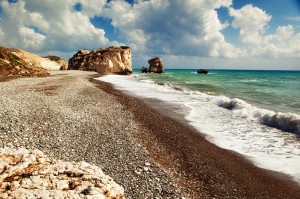
Petra tou Romiou (“Rock of the Greek”), where according to Hesiod’s Theogony the goddess Aphrodite emerged from the sea. Photo by Nino Verde via Wikimedia Commons
“Wargaming was largely made up of people with non-formal education, a group of fellow enthusiasts as is traditional in any gaming startup where everyone starts out together toward the same goal, not really thinking about stock exchanges, and so on. We sought a way to be between East and West, to be simultaneously in Europe and in Russia, where there was a similar mentality to our homeland, including a place to practice Orthodox religion and enjoy certain elements of our lifestyle (coffee, dreams of life, etc.”
Eventually, they found all this in Cyprus. “We had no intention to use it as an offshore tax haven,” Kislyi said. “You can walk in shorts and slippers, and dressing for the job is more casual. It’s not scary here. You have tasty food. And in the summer, everyone goes to the sea, and you can drive there anywhere along the sea to find a place where the water is slightly more clean than in Limassol. It’s even possible to build a home in the mountains. There are plenty of beautiful monasteries, history. Aphrodite herself event came from under the foam right over there, if only obliquely.”
In May, the company had moved to the 75-meter (250-feet) tall Rotos Presidential Building in Lanarca. However, they’ve run into trouble with keeping up with required reporting in Cyprus, even to the point where the company was temporarily de-listed on the stock exchange. “In Cyprus, there is understandable and intelligible taxation,” Kislyi said. “And this is the European Union. Everything is of course tough in the EU, but on the other hand, it’s honest and logical. If something isn’t clear, there is Deloittte or KMPG, who are there to help explain things, or help if needed. If they can’t help, then you can ask for a meeting with the Minister of Finance and talk to him, and explain your situation… well, I’m actually exaggerating a bit, but the atmosphere is like that.”
Wargaming’s rapid expansion worldwide

Gas Powered Games was acquired by Wargamers.net on Valentine’s Day 2013. The Redmond-based company has since been renamed Wargamers Seattle. Photo via Wikimedia Commons
In October 2012, World of Tanks won its first Golden Joystick Award for MMO Game of the Year from BBC-4’s GamesMaster television program, joining the likes of Civilization V: Gods & Kings, which one the Strategy Game of the Year Award at the same time. For Kislyi, a fan of Civilization, things appeared to have come full circle, but actually the growth was only beginning. That December, World of Tanks surpassed the 45 million registered users mark. The following month, the company acquired Day 1 Studios, headquartered in Chicago and in the U.S. State of Maryland, acquiring the World of Tanks competitor free-to-play game Reign of Thunder. In February 2013, Wargaming absorbed Gas Powered Games, based in Redmond in the U.S. State of Washington, changing the name to Wargaming Seattle. This brought the likes of Age of Empires Online into Wargaming’s empire.
By May 2013, Kislyi had opened an office in Japan, and by August, the company’s 15th year anniversary, it had employed some 2,000 specialists worldwide to support 70 million users around the globe. This would grow to 2,800 employees and 80 million users by the end of the year, and by March, Wargaming employed its 3,000th professional.
In Cyprus, Kislyi maintains today an office of 200 people. “Approximately half of these people are so-called publishers,” he said. “Our development teams number about 600 people. We also employ artists, programmers, and product managers who create product value. About half the company is publishers, some 1,300-1,400 people, and they are engaged in customer service. All this after just 3-1/2 years. We can say we are a real game company, not just some pretty little tanks moving across a screen. This is a service company.”
Kislyi is very adamant that they are an above-the-board company. “Why do we have an office in Paris or in San Francisco?” he asked. “These are not the cheapest locations, and they are not tax havens. We tried to operate from Minsk in Europe, but this did not work. This game has a good story. It’s a cultural phenomenon. Our tanks find their way to cartoons and in comics.”
Wargaming in May 2013 presented a new monetization system, called “Free to Win,” which was intended to revolutionize the perception of free-to-play gaming. Given the innovative nature of its business model, Kislyi does quite a bit of its marketing work in-house. “We share an objective approach to reality,” the CEO said about his company. “Yes, we are all winners! But no one can keep up the pace, and so we have to make sure not to make mistakes that will change people’s good opinion of us. So every day we keep our finger on the pulse, and we apply a scientific approach to everything.”
Though the company’s headquarters have left Belarus, its heart remains in Kislyi’s homeland. “We spend a huge amount of activity restoring art and monuments of the Second World War under our own initiative ‘to remember,” Kislyi said. “In general, we arrange meetings with players in museums – it’s very cool. The museums generate income, and we get the opportunity to get together with players, hold tournaments, talk about tanks, look at them, and sometimes even go somewhere. In Belarus, we restored a T-34 using nuts and bolts, and it took part in a Victory Day parade. It’s a legendary tank with a 76 mm gun, antique.”
Cyprus is nice, but Belarus has better schools
Kislyi, speaking as a CEO, shared his view on why the really large companies from the gaming industry come from Belarus. “I am inclined to believe that, first, Belarus as a nation is a modest nation, and we understand that there is a balance in this world,” he said. “You can be ahead today, but tomorrow there could be a war. We understand the truth about human modesty. It’s evident in our literature and our history. Second, it’s probably correct to say that after we lay in ruins after World War II, Minsk and Belarus were reborn. At that time, a large number of technical production came to it, in the form of electronics, BelAZ (Belarusian Automobile Works), MAZ (Minsk Automobile Works), color televisions, and so on. Lots of things are done there, including optics.”
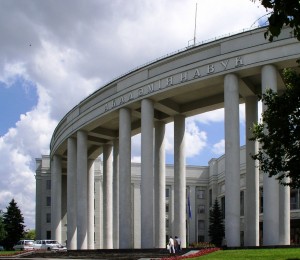
National Academy of Science of Belarus, a symbol of Belarusian technological prowess. Photo by Hanna Zelenko via Wikimedia Commons
“My father was a man of science in Belarus,” Kislyi said. “Belarus, that is, at the time of the collapse of the Soviet Union, and sometime after that it had a huge production potential, including technical production, engineering, and scientific development. As a result, Belarus developed over the years a very strong education system, with universities, technical colleges, all with a strong curriculum.”
This opinion was shared by Kislyi’s wife. When she came to Cyprus, she noted that the Belarusian curriculum was better. “It does better with mathematics and other subjects, this despite the fact that there is the British system here,” he said. “Education always has the potential to be improved, if you want to invest in the knowledge of a child. Then (after they complete secondary school) let them decide for themselves if they need a Harvard or a PhysTech, each of them will have their own choice. As a person who was enrolled in the Physics Department of my university, I can say that we have an outstanding educational base. The Belarusian team in the programming Olympiad always ranks in the top three, and if not, then somewhere nearby. We sometimes win prizes. It so happened that my brother studied applied mathematics, and he made friends with all these Olympiad team members, and many of them went to work for us.”
“I believe that the scientific and technical potential of Belarus is big,” Kislyi said. “It’s lost, of course, in tough economic times, but it’s always there. There is a word – we are ‘tolerant.’ That is, our history has all sorts of dark days. In Cyprus, by the way, it’s been the same. In the last 3,000 years they’ve had the Greeks, the Turks, even Richard the Lionhearted. Cypriots are also a stoic people. You can jokingly say that in Belarus there are no natural resources, except for wood (and it’s all been cut down), and beautiful girls, so you have to use your head. Here there is not a stick sticking out of the ground, and there is no oil. In Belarus, there is a little fertilizer and a small amount of oil somewhere near Mazyr (in Hrodna Voblast).”
Translated from an interview by Roman Dorokhov
Vedomosti.ru

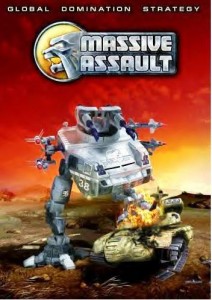
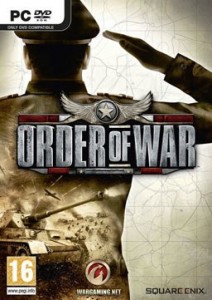
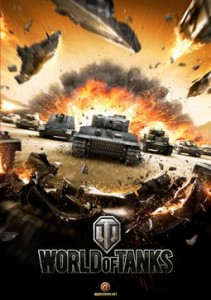
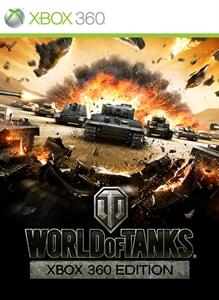
Leave a comment